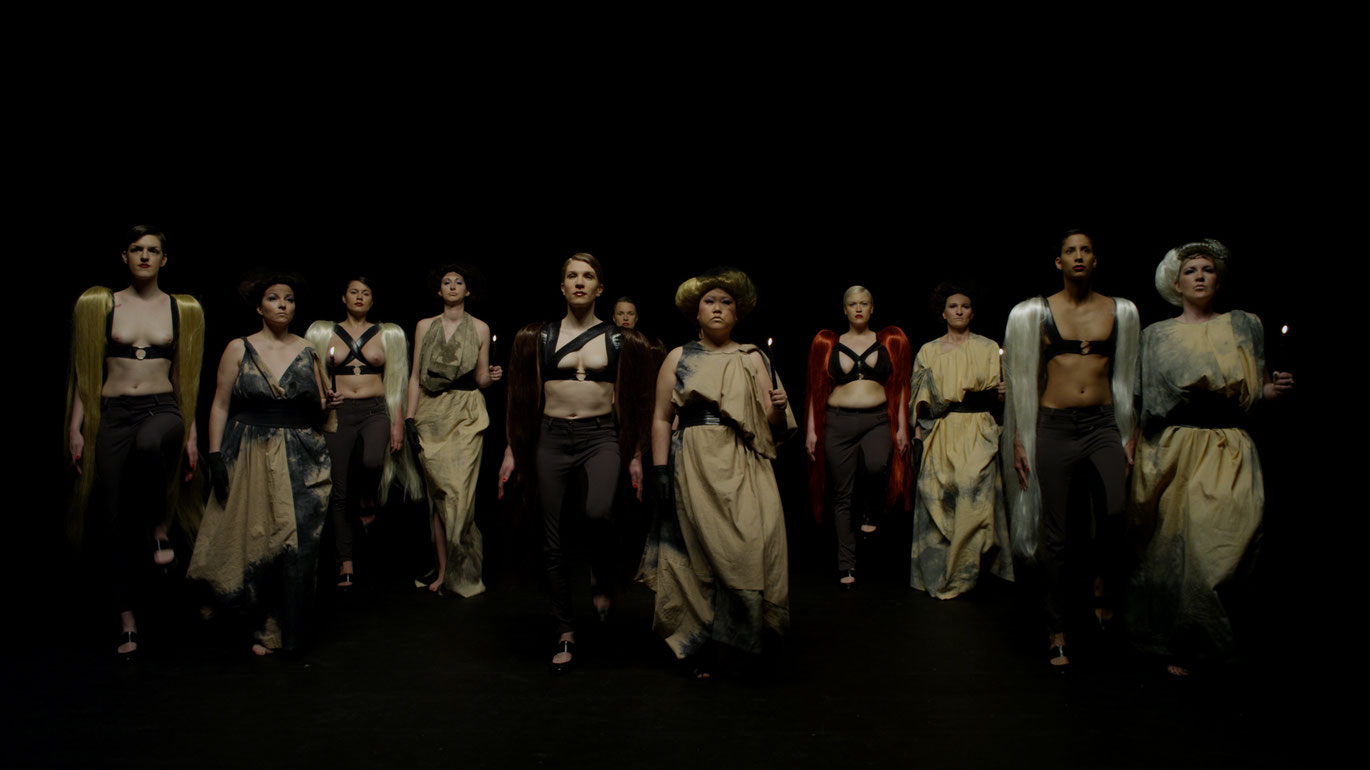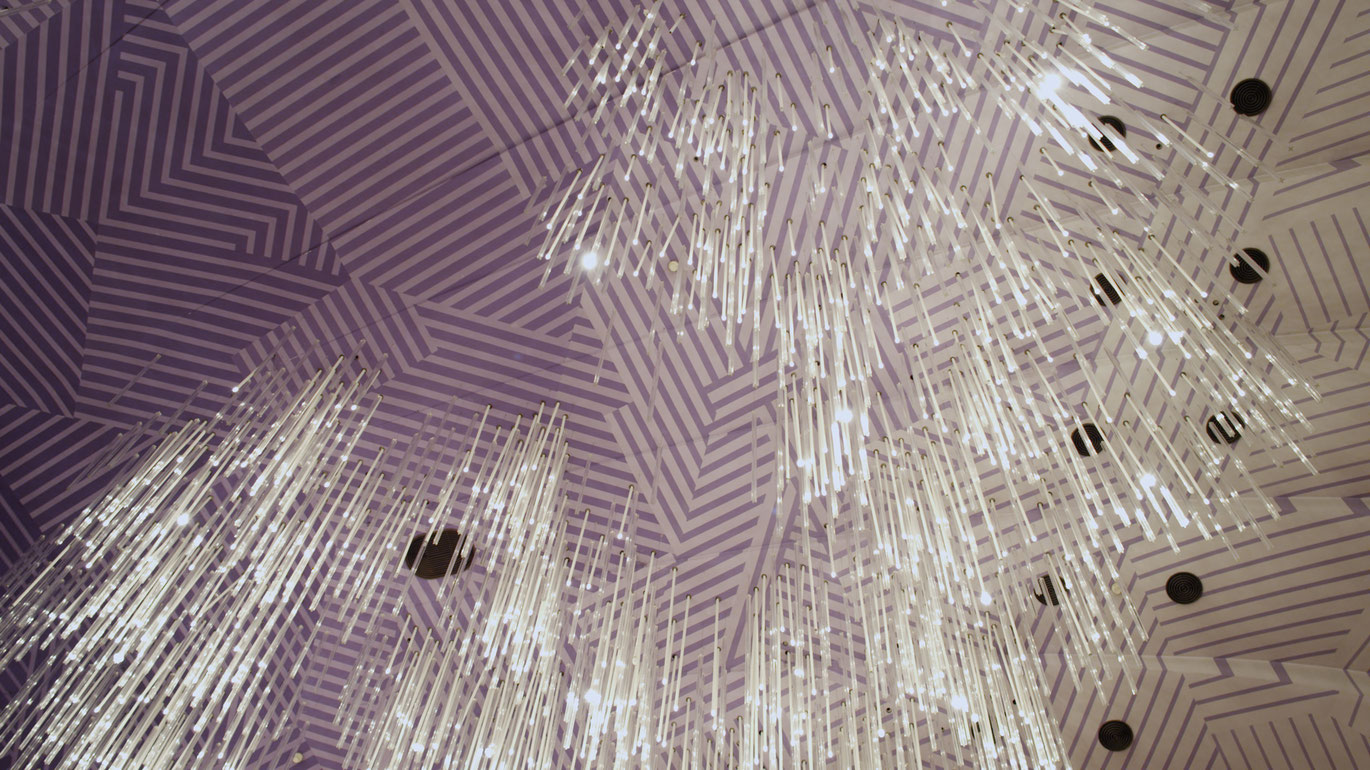PAROLE ROSETTE
Extremely confident in her mastery of style and taking obvious delight in her citations, in PAROLE ROSETTE, Katrina Daschner uses the performance by a well-rehearsed group of queer couples to stage a controlled game around/about social conventions and (sexual) self-determination, interwoven into an architecturally sublime setting (the Carlo Mollino´s Teatro Regio in Turin). This piece demonstrates, once more, her intricate knowledge--inspired by a combination of fine arts, photography and theater--of style, codes, staging and image conventions as well as of the elements that constitute "classical beauty." Here, she subverts her own so tantalizing abundance of images by cross-cutting them with detailed close-ups and performative interventions, by a storyline that is nearly militaristic in style, and a subtle, yet clear and queer diversity of the individual actors and actions.
Time and again, Katrina Daschner conceives of the stage or exhibition context as sexualized fields of play or performance where processes of desire and power as well as visual regimes are enacted and negotiated. Her films are performative spaces of experience. By connecting theatrical spaces and acts with cinematic elements, she deliberately works with variations of a seemingly familiar mise-en-scène, into which she inscribes subtexts using citations, stylistic set pieces and codes, thereby sounding out the possibilities of the media chosen and cunningly transgressing the limits of its conventions.
(Barbara Reumüller)
Translation: Erika Doucette
In this nonconformist silent musical, we only hear the music with our mind’s ears. Women march across Turin’s Teatro Regio stage, one group dressed in long togas, the other in horse riding hippie pants, leather bras and epaulets of colorfully dyed hair. The women link up in pairs to play in an erotic pantomime. The camera follows their motions and bodily contours that playfully correspond with the theater interior. Their buttocks seem to play velveteen chairs while dripping blood becomes the crystal-draped chandelier. Or, maybe it’s classical architecture that is modeled on the proportions and curves of a woman’s body?
(Ewa Szablowska)
Katrina Daschner, who has been constantly focusing on feminine films, reminds us what kind of sexual implications a common theater can have. The director interweaves the performance by a well-rehearsed group of queer couples with the stage of the Teatro Regio made by Carlo Mollino in Turin.
(Jinna Lee)
PAROLE ROSETTE
2012
Austria
9 min


